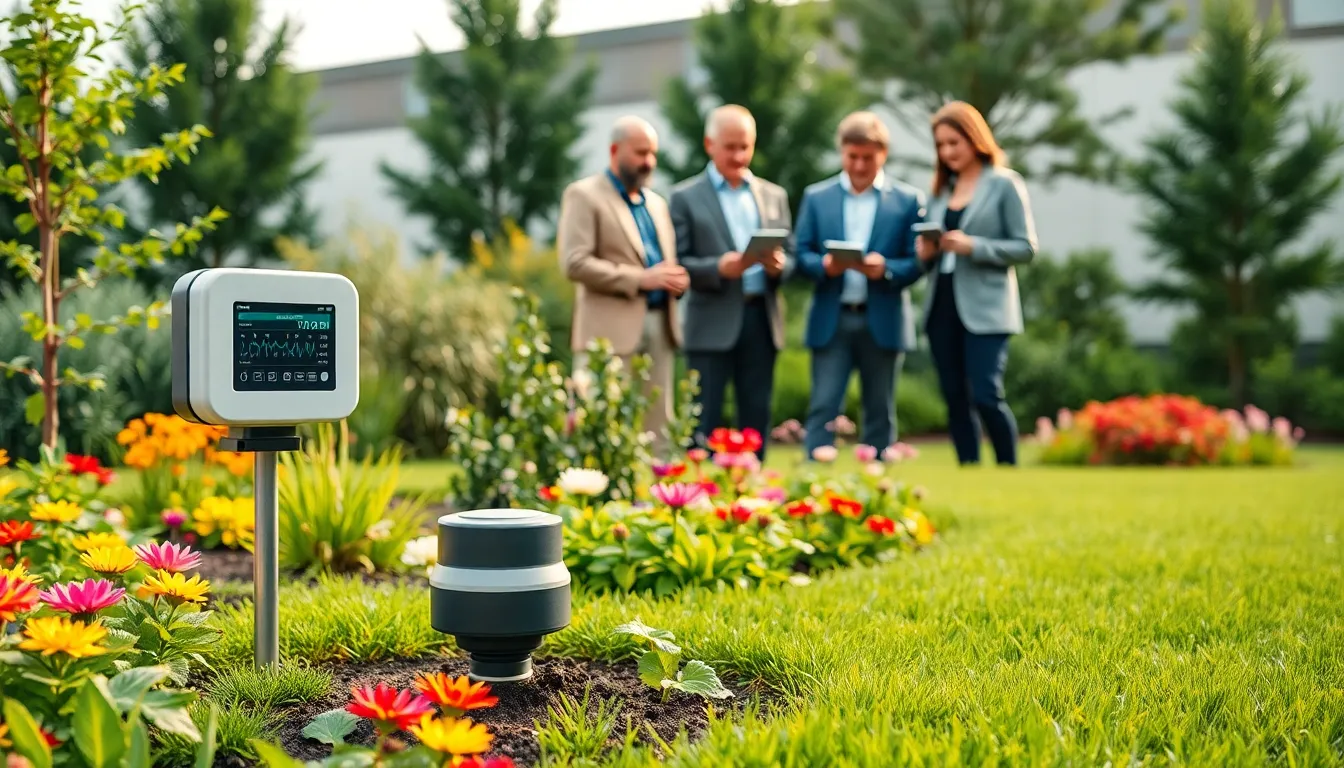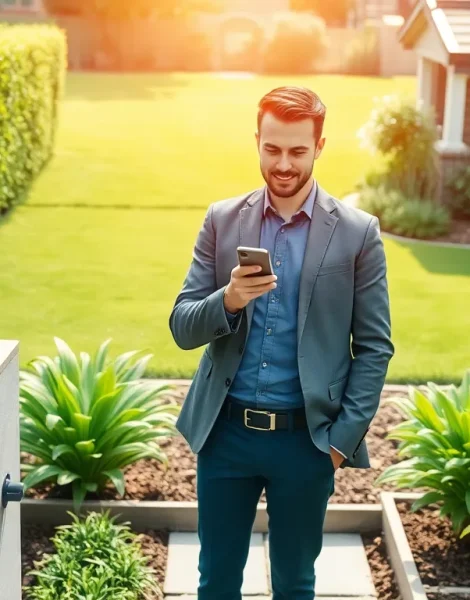Watering your garden should not feel like rocket science, yet here we are. Enter the world of smart irrigation, an innovative solution that’s turning traditional gardening on its head. What if you could automate your watering schedule, ensuring your plants get just the right amount of water, and save money in the process? We’re talking about high-tech watering systems that make your life easier and keep your garden thriving. So grab your spade and prepare for a tech-savvy journey into smart irrigation that even the busiest plant parent would appreciate.
Table of Contents
ToggleUnderstanding Smart Irrigation Technology

Smart irrigation is essentially the marriage of technology and gardening. Think of it as a set of systems and gadgets designed to optimize water usage, taking out the guesswork associated with manual watering. Sensors detect soil moisture, weather conditions, and even plant types to adjust watering schedules automatically. With this kind of tech-savvy approach, irrigation becomes efficient, consistent, and friendly to the environment. The goal is clear: maximize water efficiency and minimize waste. Installing these systems often involves various components, including smart controllers, soil moisture sensors, and mobile apps that provide real-time data. The beauty in smart irrigation is not just about convenience: it’s about employing technology that works in tandem with nature.
In essence, smart irrigation systems are designed to ensure that plants receive just the right amount of water based on their needs and environmental conditions. When conditions change, so does the watering schedule, making this technology a game-changer for anyone with a garden.
Benefits of Smart Irrigation Systems
The advantages of smart irrigation systems are as abundant as sunshine on a summer day. First and foremost, these systems significantly conserve water, cutting down on unnecessary usage. This is especially crucial in regions frequently plagued by drought. By receiving tailored watering schedules, plants flourish without over-saturation or dehydration.
Not only does smart irrigation promote plant health, but it can also trim the greenery from your utility bills. Because systems only activate when required, users save money on water costs. Also, many systems come equipped with leak detection features to warn homeowners about potential issues before they escalate, providing peace of mind and an extra layer of protection.
Then there’s the convenience factor. Imagine managing your entire irrigation system from an app on your phone. Monitoring watering schedules, adjusting settings, and getting notifications is swiftly achievable with a few swipes of your finger. Rain sensors add another level of intelligence, ensuring that resources are not wasted when nature lends a helping hand. Summarizing, the benefits of smart irrigation systems roll into one neat package: they are efficient, cost-effective, user-friendly, and kind to the environment.
Applications in Residential and Commercial Settings
Smart irrigation is not just for sprawling farmlands: it’s successfully implemented in both residential and commercial settings. Homeowners are turning their gardens into lush escapes thanks to the precision of smart technology. For instance, a residential garden with varied plant types can have individual watering needs. Smart systems diagnose those unique needs to deliver tailored watering solutions.
Commercial settings, but, capture the potential of smart irrigation on a grander scale. Large parks, golf courses, and corporate landscapes use these technologies to maintain health and aesthetics. With high traffic and diverse vegetation, it is crucial to manage such landscapes meticulously. Smart irrigation systems offer centralized control measures that yield significant savings in water consumption while promoting vibrant greenery in public spaces.
Schools and municipal properties have also embraced smart irrigation to ensure that their grass, gardens, and recreational areas look their best without wasting resources. The adaptability of this technology has proven beneficial across educational institutions, ensuring that children have safe and enjoyable spaces without parents worrying about inflated water bills.
Challenges and Considerations for Smart Irrigation
Though smart irrigation systems are delightful advancements in gardening, they come with their share of challenges. For starters, initial installation costs can be a deterrent. Homeowners might hesitate due to perceived high expenses related to sensors and controllers. But, it’s essential to view it as an investment. The savings on water bills and potential for healthier plants can outweigh upfront costs in the long run.
Integration can also present a hurdle. Not all existing sprinkler systems can be retrofitted for smart technology, leading to the challenging decision between upgrade and replacement. Also, Internet reliability remains a factor for smart irrigation systems that connect via Wi-Fi or cellular networks. Dealing with connectivity issues can turn a seamless experience into a frustrating one.
Finally, while technology makes life easier, it isn’t foolproof. Systems may require periodic maintenance to ensure sensors are properly calibrated and functioning optimally. Also, tech-savvy homeowners must stay up-to-date on the best practices for their system. Even though these challenges, the advantages provided by smart irrigation systems still pave the way for resource efficiency and plant health.
The Future of Smart Irrigation in Real Estate
As we peer into the future, the role of smart irrigation in real estate appears promising. As climate concerns continue to influence property management, the integration of eco-friendly systems can enhance property value. Homes outfitted with smart irrigation systems will certainly attract environmentally-conscious buyers who appreciate technology that conserves resources.
Also, real estate developers are increasingly considering smart irrigation as an essential feature in their construction plans. Building landscapes that use efficient watering systems can create a competitive edge, allowing developers to market properties based on sustainability. As urbanization blooms, the need for efficient water management will only act as a propeller for advancing smart irrigation technology.
With governmental regulations and consumer preferences merging towards greener choices, smart irrigation stands poised to become standard in new properties. The potential for connectivity across homes, where watering schedules can be automated alongside other smart home features, shows boundless opportunities. Innovation in this space means that what may seem like a futuristic idea will soon become the norm.









